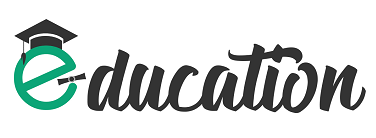France stands as an enticing destination for students worldwide, offering a compelling mix of quality education, lively student culture, accessible healthcare, and tenant-friendly housing laws. For international students, pursuing higher education in France can be a transformative experience. Here’s a detailed look at the French higher education system and how international students can navigate it effectively.
Understanding the French Higher Education System
The French higher education system operates on three distinct cycles, each offering unique opportunities for academic and professional growth.
- First Cycle Studies (License): This corresponds to a Bachelor’s degree and provides a solid foundation in various academic disciplines. Students in this cycle gain fundamental knowledge and skills necessary for their chosen fields of study.
- Second Cycle Studies (Master’s): Equivalent to a Master’s degree, this cycle offers advanced coursework and specialized training in specific areas of interest. Master’s programs in France are renowned for their academic rigor and practical relevance.
- Third Cycle Studies (Doctorat): Involves pursuing a Doctorate or Ph.D., focusing on original research and scholarly inquiry. Doctoral programs in France offer students the opportunity to contribute to their respective fields through groundbreaking research.
Students have the option to choose from various types of institutions, each catering to different academic and professional interests.
- Universities: Public institutions offering a wide array of academic, technical, and professional degrees across multiple disciplines. French universities are known for their academic excellence and research opportunities.
- Grandes écoles: Highly competitive institutions offering specialized programs in fields like engineering, business, and architecture. Admission to Grandes écoles is often based on rigorous entrance exams and academic performance.
- Specialized Schools: Prepare students for specific professional careers in areas such as art, social work, and tourism. These institutions offer practical training and industry-focused curriculum.
Navigating the Application Process
The application process for international students varies based on their nationality and the type of institution they intend to apply to.
- EU Students: Apply directly to universities through the Parcours Up platform, similar to French citizens. EU students enjoy streamlined application procedures and access to a wide range of degree programs.
- Non-EU Students: Utilize the Études en France process via Campus France, which encompasses university applications and visa requests. Non-EU students must meet specific requirements and deadlines to ensure a smooth application process.
The application timeline typically spans from October to January, with evaluations conducted from January to March. Acceptance notifications are usually issued by April, with decisions due by the end of May.
Essential Documents for Application
International students must prepare several documents to complete their applications successfully. These documents include:
- Passport or ID: Proof of identity and nationality.
- Passport-size photographs: Required for official documentation and identification purposes.
- DAP certificate (for 1st-year Non-EU students): Essential for non-EU students applying for undergraduate programs.
- Exam results (e.g., GRE, GMAT, LSAT): Depending on the program and institution, standardized test scores may be required for admission.
- Motivation letter: A personal statement outlining the student’s academic and career goals.
- Proof of language proficiency: In English or French, depending on the language of instruction.
- Previous transcripts and high school diploma: Academic records demonstrating the student’s educational background and achievements.
- Recommendation letter: Letters of recommendation from teachers or academic mentors, highlighting the student’s academic abilities and character.
- CV (for master’s and Ph.D. programs): A detailed resume outlining the student’s academic and professional experiences.
- Proof of financial means: Documentation demonstrating the student’s ability to cover tuition fees and living expenses.
- Copy of birth certificate: Official proof of birth date and nationality.
- Other institution-specific documents: Additional requirements may vary depending on the institution and program of study.
Understanding Tuition Fees
Tuition fees in France vary depending on the institution and the student’s status.
- European Students: Benefit from subsidized tuition fees in public institutions, making higher education more accessible and affordable.
- Non-EU Students: Pay differentiated fees, with rates ranging from €170 to €601 per year for public institutions. Private institutions typically have higher tuition fees, requiring students to consider their financial resources and budget accordingly.
Exploring Student Life in France
Studying in France offers a vibrant and diverse student life, characterized by various social and cultural activities. While language requirements and application processes may present challenges, the overall experience is enriching and rewarding.
- Social Activities: Students can enjoy affordable bars and pubs near university campuses, providing opportunities for socializing and networking with peers.
- Cost of Living: Varied depending on the city and lifestyle, France offers moderate living costs for international students, allowing them to explore and experience French culture while pursuing their academic goals.
Pros and Cons of Studying in France
While studying in France presents numerous benefits, including high-quality education and enriching cultural experiences, it also comes with its set of challenges. Language requirements, rigorous application processes, and varying tuition fees are aspects international students should consider when planning their academic journey in France.
Conclusion
Pursuing higher education in France opens doors to a world of opportunities for international students, offering a unique blend of academic excellence, cultural immersion, and vibrant student life. With careful planning and preparation, students can make the most of their educational experience in France and embark on a journey of personal and professional growth.




